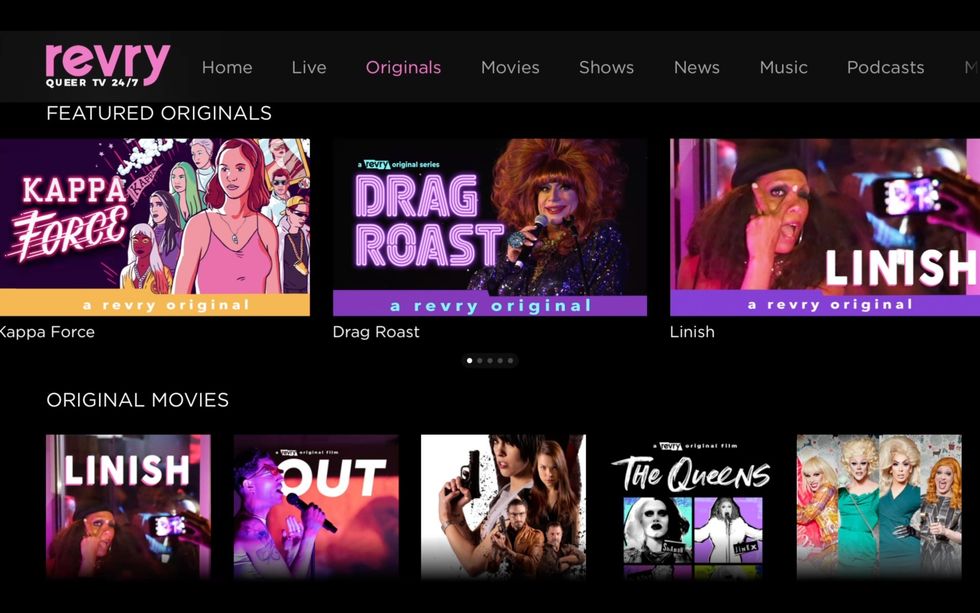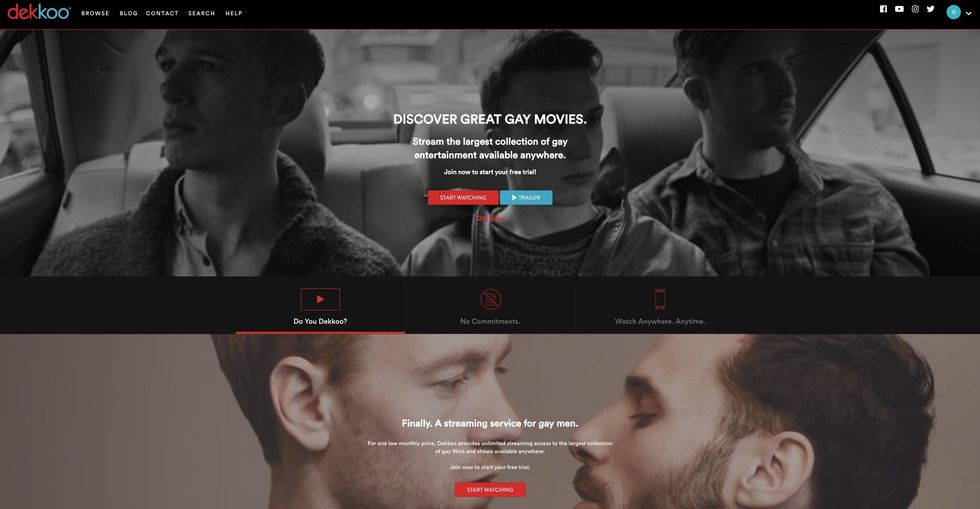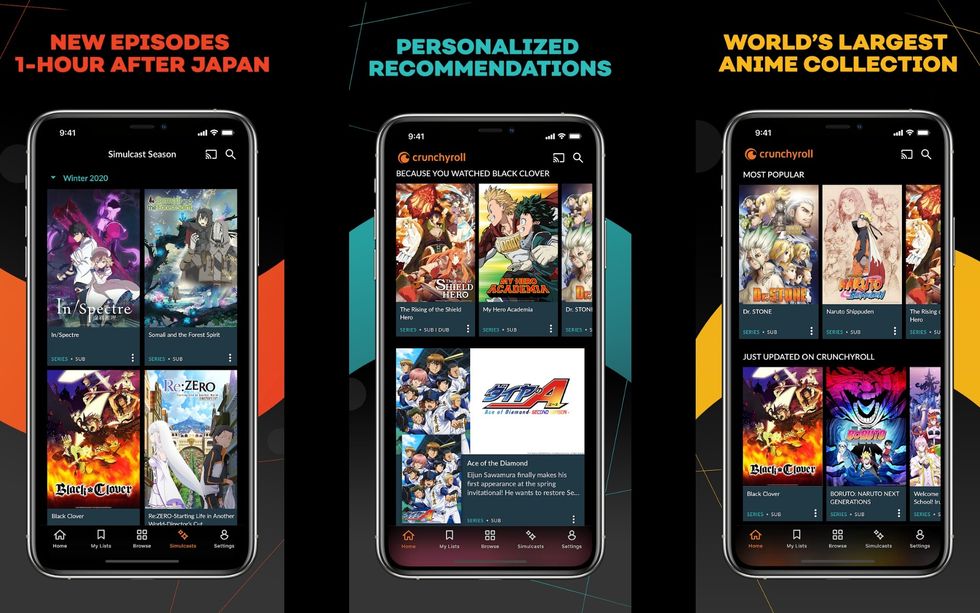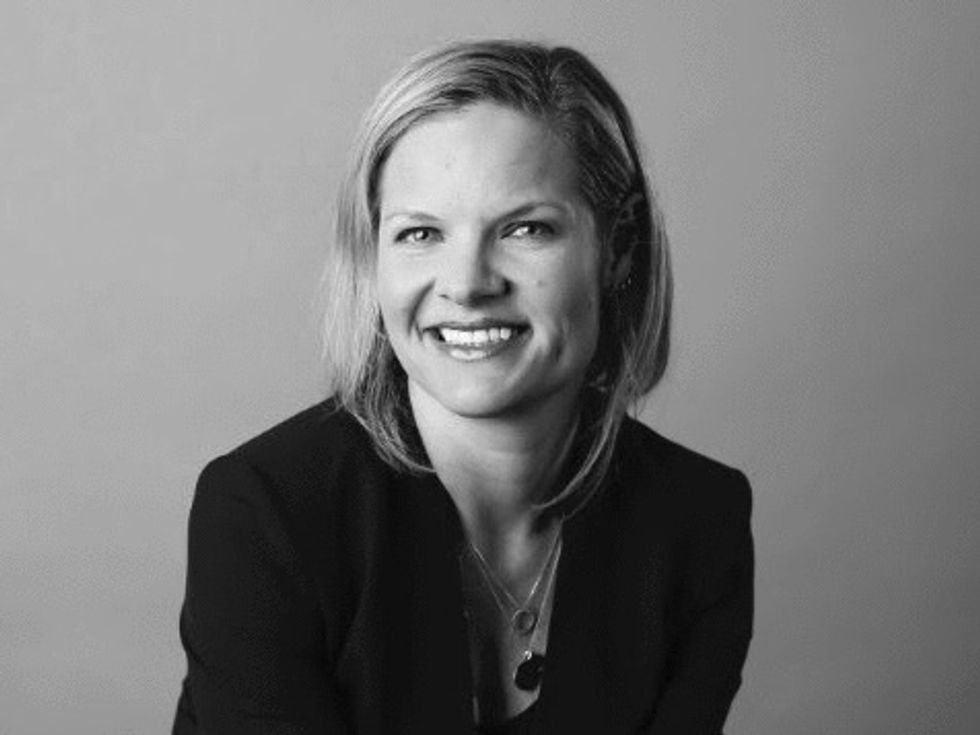Shantell Yasmine Abeydeera is an L.A.-based writer, performer and content creator. Her latest series, "Dating In Place," will be available on Revry, an L.A.-based, ad-supported, niche streaming service focused on the LGBTQ community.
Revry is one of many niche streaming services competing in an increasingly crowded market, where audience loyalty and good relationships with artists are key to success, as we probed in an earlier piece on what it takes for a niche streaming service to survive.
Revry is free and accessible to more than 250 million households and devices in over 130 countries. Its offerings are divided into several channels, such as "Revry News" and "Revry Live TV." "Dating In Place" will air on the channel " OML on Revry," which debuted earlier this month to focus on queer female programming.
It is a collaboration with OML, a boutique media company formerly called One More Lesbian, of which Abeydeera is also the director of content and partnerships.
dot.LA recently caught up with her about her new show, her thoughts on the value of queer spaces in the streaming world and how niche services can help build community around content.
OML on. Revry - Official Teaser
dot.LA: Do you consider yourself a queer-oriented artist?
Abeydeera: I consider myself to be a storyteller, first and foremost. But being queer is a very important part of of my storytelling journey, mainly because of the lack of representation that was available to me when I was younger. I wasn't seeing stories where I was represented on screen. And that's because of the fact that I am so unique, in being multi-ethnic, queer, very feminine-presenting, a lot of things that we just don't really on screen.
I was always really, really thirsty to see that kind of representation. I started creating queer storylines, and once it started being received by the queer community, I saw that there was such a need for it.
How does a platform like Revry allow you to get those kinds of representative stories out there?
I think it's huge, but there is definitely a struggle. Platforms like Revry obviously don't have the money behind them, the way that the mainstream streamers like your Hulus and your Amazons do. So it's harder for them to produce shows that are the kinds that bring in the audiences that become loyal.
What's really smart is that these guys are focusing a lot on short-form content, which is far more attainable for content-creators as well as for the platform. So, say for example, "Dating In Place": 10-minute episodes, 10 episodes of the series – that is far more affordable than 10 episodes of a half-hour series where you go from the show costing $20,000 to costing $150,000. It's easier for queer content-creators to fund short-form content.
In that sense, do you see Revry as a stepping stone to working with a different, perhaps larger distributor?
I would like to see the development of platforms like Revry. My hope is that these platforms develop and form the viewership they deserve, so that then they're able to become partners in creating more content. I'm not necessarily thirsty to go and work with a big machine, but I'm not totally against it either.
Are you worried about potentially pigeonholing your career by focusing on queer content or working with a queer-oriented distributor?
No, I don't really worry about pigeonholing my career, mainly because I think there are many different incarnations of queer stories that can be told. For a long time, queer people weren't able to tell their stories. I think we're going to start to see an expansion. So I'm looking forward to telling stories that just merely have queer characters in them. And where we're not necessarily calling it queer.
How do you see "Dating In Place" playing a role in that trajectory of telling broader queer stories?
One of the interesting things in "Dating In Place" is that we don't actually ever refer to any of the characters as being queer. We never talk about it. I think that's a big step. And there's never any reference to there being any issues with parents or families when it comes to these characters' sexual identity.
The issue was just that these two girls met, they were going to go on a date, and then the pandemic hit, and now they're in completely separate countries, and they're dating online and falling in love but they've never seen each other or touched each other.
If not for OML on Revry, what do you think would have happened with "Dating In Place"?
A lot of what happens to short-form content is it goes to festivals and then it goes to YouTube. And especially for queer content, that's kind of the death for the content creator, because queer content on YouTube is quite famously de-monetized. So the money that you're making on the clicks of queer content is, like, minus cents in comparison to other content that can maybe make like a dollar, or whatever. So I think without a platform like OML on Revry, a show like "Dating in Place" would have just gone on YouTube or Vimeo.
How else would you say having your show on OML on Revry is beneficial to you as a creator?
The thing that I will say about the queer community, especially – consumers of queer content – is that they're very loyal. Once they become interested in your content, they are then interested in you and invested in you. As an artist and as a creator, that's really all you can ask for: people that are going to be there to view the content that you've made, and people that are going to be there when you make more.
I'm really excited for this platform to exist for this audience. Before, a lot of this audience, the fandom audience, kind of would just be scrolling through YouTube, clicking on tiny thumbnails trying to figure out, is this a queer-inclusive show? And now, hopefully, they will migrate over to a platform where they know that all of the content is queer-inclusive and queer-positive, and has been made for them. Hopefully, now this audience will find a home.
This interview has been edited and condensed for clarity.




 L.A.-based
L.A.-based  Dekkoo focuses on content for gay men
Dekkoo focuses on content for gay men
 Alden Budill, Crunchyroll's head of global partnerships and content strategy.
Alden Budill, Crunchyroll's head of global partnerships and content strategy.